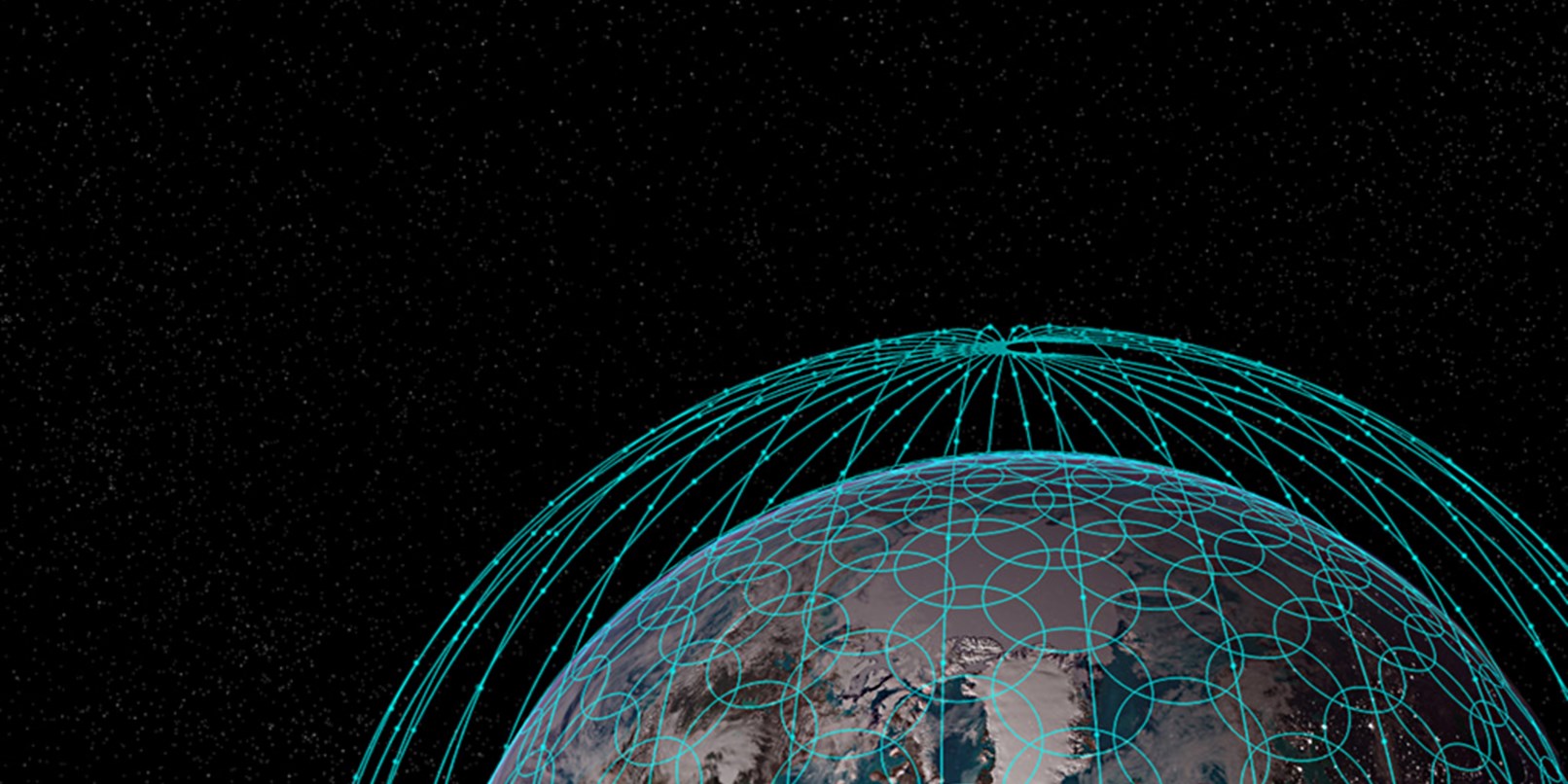Creating a “Russian OneWeb” will cost investors 299 billion rubles

Illustration of oneweb network
One of the most expensive areas of the Digital Economy program, the implementation of which is planned until 2024, is Information Infrastructure. The total amount of funds required for the implementation of all projects in this area should reach 423 billion rubles. That is how much is planned to allocate financial resources according to the draft plan of measures, writes RBC. The main expenses (299 billion rubles) of the working group of the program propose to direct the creation of a global satellite network, which has received the working title “Global Multi-Functional Infocommunication Satellite System (GISIS)”.
It is interesting that earlier this system was not mentioned in any of the government programs, it was not indicated in public documents either. Unfortunately, not much information is also contained in the plan of events on GISIS. This document only states that the state corporation “Roscosmos” together with other “interested organizations” in January-March 2018 will develop the concept of the system.
In the same year, plans for the creation of GMISS are planned to be included in the strategy of Roscosmos. The supervisory board of Vnesheconombank must decide on the possibility of financing the project on the basis of an investment document submitted by Roscosmos. In March-June of the same year, it is planned to create a “consortium for the implementation of GMISS with the participation of Roskosmos, Vnesheconombank and other organizations”. Well, by the end of 2020, the government intends to implement the first stage of “development work with the development and manufacture of prototypes of components” of the GMISS.
As it turned out, the idea of creating GMISS belongs to Roscosmos. The project provides for the deployment of a new hybrid satellite and cellular communications network. According to a source close to the project, GMISS is needed in order to cover the entire territory of the country with a satellite telephone network. Cellular networks cannot cope with this task.
The project will be implemented by two companies. This is Russian Space Systems (it belongs to Roscosmos) or its structures. The company plans to launch a constellation of low-orbit satellites, which will provide full coverage of the Earth’s surface. The cost of creating a “hybrid mobile communications infrastructure (using the global satellite communications system)” will amount to 19 billion rubles, while the development of the draft concept of the State Communications Information and Public Works is estimated at 30 billion rubles. The funds will be extrabudgetary, it is planned to attract them already in 2019. According to a source close to the project, GMISS can be described as “Russian OneWeb”.
OneWeb is an English telecommunications company founded by former Google manager Greg Wyler. The company plans to send several hundred satellites into orbit, which will cover the entire territory of the Earth with a connection, allowing you to access the Internet almost anywhere in the world. Initially, the number of satellites was planned to be increased to 648, but then their number was adjusted several times. The project has quite a lot of investors; Airbus Group, Bharti, Coca Cola, Hughes, Virgin Group, Qualcomm and SoftBank are among the largest.
The first phase of OneWeb satellites will be launched with the help of the Russian Soyuz launch vehicle from the Kourou cosmodrome, as well as Baikonur and Vostochny. Roscosmos won the right to 21 launches, the implementation of which will begin in 2018. The cost of the contract with the Russian company was $ 1 billion.
In June 2017, two companies, OneWeb and JSC Satellite System Gonets, signed an agreement on the creation of a joint venture. The role of “Gontsa” in this case is the sale of the resources of a foreign partner in Russia. In addition, it was previously reported that the state corporation entered into a new agreement with OneWeb, according to which the Russian side will be a joint operator for the operation of satellites.
GMISS, as far as it can be understood, is not the Russian part of OneWeb, but its copy, so to speak. “OneWeb is a fairly public company, it announced all the agreements with the Russian side. Yes, and these 299 billion rubles. it’s enough to create a fully-fledged new system at the first stage, ”said Sergey Pekhterev, head of the AltegroSky satellite communications operator’s business with individuals.
In his opinion, the expediency of creating such a system is questionable: “Even with regard to OneWeb, there are doubts about the possibility of a project payback: 70% of the territory covered by the service is water, there are no users there. The Russian system will be able to sell services to our friendly countries - Belarus, Venezuela, possibly the countries of the Eurasian Economic Union, Cuba, but the big question is whether they have enough solvent users to recoup the costs of such a global system. ”
All Articles